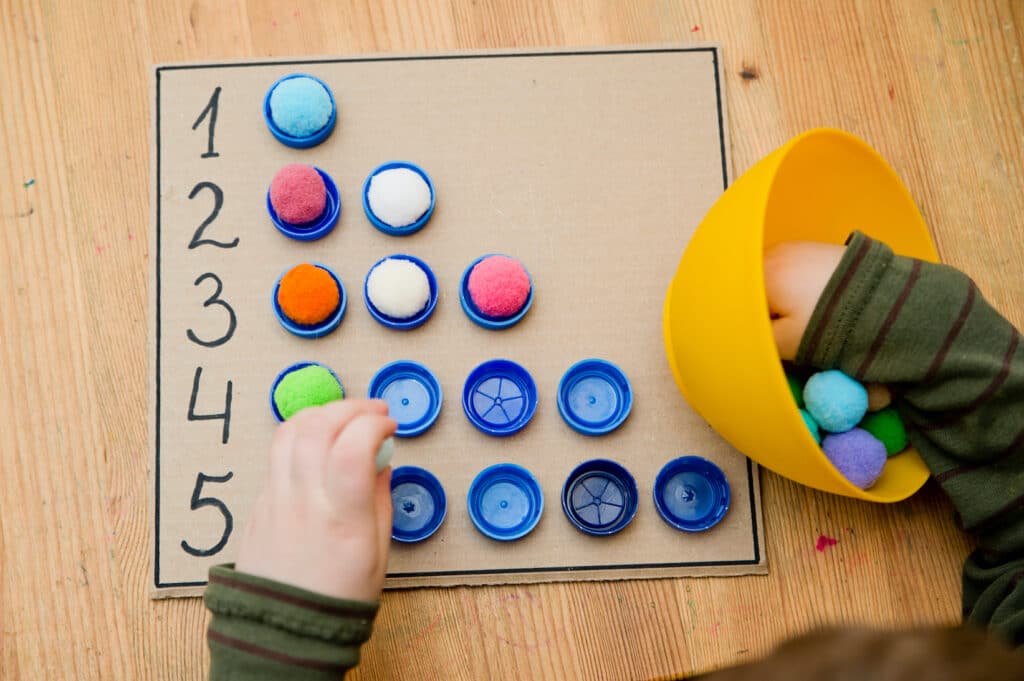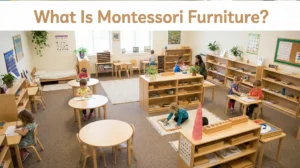Preschool learning doesn’t need to be as easy as A, B, C and 1, 2, 3. In fact, when it comes to numeracy, an American study suggests that preschoolers can learn much more complicated maths than we give them credit for.
Here we look at Vanderbilt University’s findings in more detail, and see how you can extend your mini-mathematician’s skills by adding fun to new numerical concepts.
What does the American study tell us about preschoolers’ mathematical abilities?
Erica Zippert and Bethany Rittle-Johnson are the brains behind the study and they say that although preschoolers are capable of learning more complex maths concepts, parents tend to focus on simpler learning and rely on teachers to cover the more complicated ideas later in their child’s education.
Ms Zippert says, ‘We found that parents primarily reinforced only the easier number concepts, like counting and numerals, and were less likely to support pattern and spatial skills …
We also found that parents spent less time providing math support through playful activities, like reading number books and playing number games, and more time engaged in direct instruction of number concepts.’
She suggests that, instead of focusing only on number recognition and counting, parents can expand young children’s thinking and introduce these key maths concepts in the preschool years:
- Numeracy, which involves counting objects, as well as naming, adding and comparing numbers (e.g. ‘4 is bigger than 3’);
- Patterning, which sees children making patterns and copying them with the same and different materials; and
- Spatial skills, where preschoolers explore the dimensions of objects, identify their features (such as sides and corners), look for orientations and remember where objects are.
When teaching maths to preschoolers, Ms Zippert also advises parents to be confident about their own abilities.
She says, ‘Math is for everyone. When parents approach math with positivity, it is easier for the child to learn. Try not to say, ‘I’m not a math person,’ as that reinforces a negative stereotype about math.’

How can parents help preschoolers learn more complex maths?
Young children learn through play, and when it comes to numeracy, patterning and spatial skills, Ms Zippert recommends that you focus on fun and games when supporting your preschooler’s learning.
To do this, you’re encouraged to:
- Play board games and card games with your childTo build numeracy skills, look for games that provide opportunities to count, compare and add numbers. Snakes and Ladders and War are two good examples, and Ms Zippert suggests games that have, ‘Lots of symbolic and non-symbolic number cues, such as spades/clubs on cards,’ plus spaces and spinners on game boards.
- Remember to create and observe patterns in everyday lifeMaths learning can happen at home (e.g. while doing the laundry or cooking dinner) and out and about (e.g. at the supermarket or park); and Ms Zippert says that, ‘Teaching math in the moment during everyday interactions makes it more meaningful.’
To teach patterning at home, one idea is to line up socks in a line of red-blue-red-blue, ask your child to continue the colour pattern and then ask them to replicate the pattern using different colours or objects (e.g. they could line up yellow-green-yellow-green pegs).
You could also talk about how the days of the week repeat in a month, and how the 12 months repeat each year. - Experiment with block-building and puzzle gamesWhether it’s made of wood or LEGO, a block tower provides opportunities for your preschooler to build their spatial skills, as well as their structure. As a parent, you can encourage them to think about:
- Spatial dimensions (i.e. height and size)
- Spatial features (i.e. corners and sides)
- Directions and location (i.e. upside down and on top of) Ask questions like, ‘Which tower is higher?’ or ‘Which side of your building is blue?’ and give them opportunities to play puzzle games too.
This kind of play has lifelong benefits and the Association for Psychological Science has found that children who play frequently with puzzles and blocks, ‘Tend to have better spatial reasoning ability’ than those who don’t.
As life goes on, this ability to reason about space and know how to manipulate objects in space helps people do things like navigate a busy street, put together a flatpack bookcase, load the dishwasher and succeed in science, technology, engineering and math (STEM) careers.

What are some more maths activities for preschoolers?
Pinterest is a great place to find numeracy, patterning and spatial skills activities, and here are three to start with:
- Addition Game with UNO Cards: For this numeracy activity, you deal out two UNO cards (e.g. 2 and 4) then ask your child to add the numbers, using snap cubes or LEGO. They write the answer on a printable recording sheet, and then move on to the next two UNO cards.
- Pool Noodle Patterns: Combining maths, fine motor skills and water play, all you need to do is slice a few different-coloured pool noodles into pieces, then float them in a tub of water. Your child then makes patterns (e.g. blue-orange-blue-orange) with the slices of pool noodle.
- Paper House Geometry: This activity is recommended for ages 4+ as it takes substantial hand-eye coordination, but with a little help from a grown-up and some simple materials (coloured paper, scissors and glue), your child can build a prism, a cube and then a house. With lots of different angles, shapes and coloured areas, it’s a crafty way to introduce spatial concepts.
There are lots of ways that you can add complexity to your preschooler’s maths learning. Try not to underestimate their abilities or leave the ‘tough stuff’ for later. Instead, combine fun, games and more challenging concepts to help them build a great foundation for future learning.













